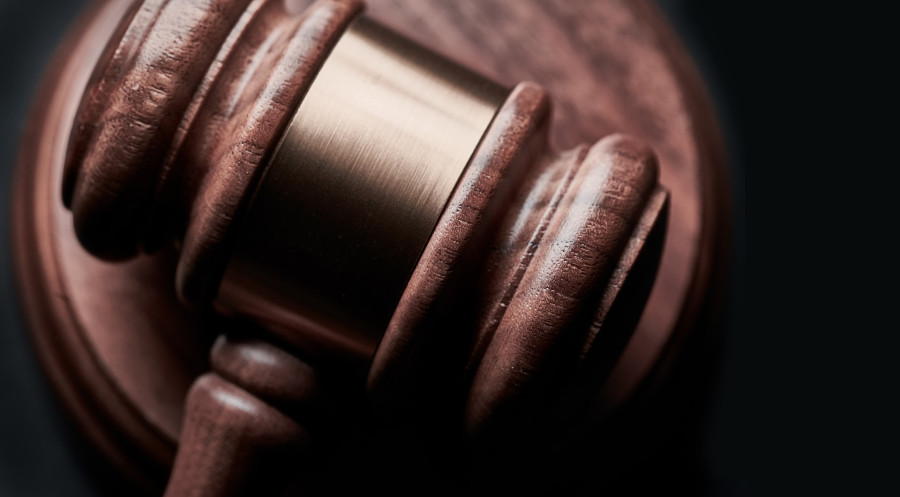Columns
Supremacy of the constitution
To preserve democratic values and norms, the reinstatement of the House is inevitable.
Khim Lal Devkota
The issue of the dissolution of the House of Representatives is currently being debated by the Constitutional Bench of the Supreme Court, and a decision is expected within a day or two. The House has been dissolved twice in five months. On May 21, Prime Minister Oli suspended the House again even before the ink had dried on the Supreme Court's February 23 decision reinstating the House. Oli had dissolved the lower house for the first time on December 20. On May 10, Oli lost a vote of confidence; but became prime minister again as the leader of the largest parliamentary party in accordance with Article 76 (3) of the constitution. As per Article 76 (4), he needed to get a vote of confidence from Parliament within 30 days, but he did not do so; and requested the President to form a government as per Article 76 (5). Pursuant to his recommendation, the President invited the political parties to form a government, but gave them only 21 hours' notice.
The country was in the middle of the virus lockdown, and it was difficult for the Members of Parliament to return to Kathmandu in time. Nepali Congress leader Sher Bahadur Deuba laid claim to the post of prime minister showing he had majority support with 149 members behind him. Oli, who had lost a vote of confidence in Parliament, again claimed the prime minister's position. This is a matter of national shame. The activities of the President are not supportive of the constitution. She has agreed to sign controversial ordinances like division of political parties, appointment of officials of the Constitutional Commission and citizenship without political and legal consultations. The President is acting as the prime minister's puppet. The Supreme Court has had to deal with the same issue time and time again.
Anti-federalism behaviour
The constitution has pledged to end all forms of discrimination based on class, caste, region, language, religion and gender to ensure economic equality, prosperity and social justice. The Oli administration has not been seen as being honest in its endeavours to fulfil these pledges. Instead, a trend to repeatedly attack the fundamental norms and values of the constitution has been fostered.
The sovereign Parliament has spoken the voices of the targeted and marginalised people. Unfortunately, the voices of these people have been silenced by the Oli government. The constitution has been weakened by the dissolution of the House twice. Weakening the constitution means weakening the rights of women, Janajatis, Dalits, Tharus, Muslims, Madhesis, Khas Aryas and others. In fact, the Oli government wants to destroy the inclusive democracy process of Nepal. It has never been seen as being honest to federalism. A proper environment for sub-national governments to smoothly carry out their work has not been created. An illusion has been created that all problems that have surfaced have sprung up due to federalism.
To restore the House, the previous decision of the Supreme Court is enough. In fact, that decision is strongly in favour of constitutionalism. If only the government had studied that decision properly, the lower house would not have been dissolved. The system of governance in Nepal is very different from the traditional parliamentary system of government. There is no point in dissolving Parliament in the name of parliamentary practice. The Supreme Court's decision states, 'It should not be disregarded to suit the necessity of an individual’s desire or belief and except in the context of periodic election, Parliament should not be dissolved in a manner that the people will also be burdened with expenses. This is against the spirit and objective of the constitution, and, therefore, such action is not in favour of the constitution.'
The House can be dissolved only when there is no situation for government formation. The intent of this fact is that mid-term elections cannot be held to put a financial burden on the people at anyone’s whim, and such an action is not constitutionally acceptable. The constitution has drawn the limitations of the executive, legislature and judiciary. The government has to be responsible to Parliament. The verdict states that the government has stepped out of its jurisdiction by dissolving the House. If we look at the facts of the Supreme Court decision, the dissolution of the House is not appropriate in any sense. Rather, the dissolution has undermined and insulted the Supreme Court’s decision. The prime minister and the President have undermined and insulted the court. A case against the prime minister and President should be filed for falsifying the constitution, and contempt of court.
Deuba for prime minister
The President is the highest authority of the executive. It is a general rule of the parliamentary system that the executive should be accountable to Parliament. It is the place where a party's discipline, validity and parliamentary whip are tested. In such a situation, after Member of Parliament Sher Bahadur Deuba submitted his claim to the President's Office, the President should have appointed him as prime minister and sent him to the House for a test. A case was filed at the Supreme Court after the President did not appoint him even after he submitted a claim for the prime minister's position.
For the supremacy of the constitution and democratic values and norms, the reinstatement of the House is inevitable. The Supreme Court’s latest verdict has also stressed the verbatim implementation of the constitution. Let us hope and trust that the Supreme Court will reinstate the House and give a decision that Deuba, who has claimed the premiership with the signatures of a majority of the members as per the call of the President, is appointed prime minister in line with Article 76 (5). The issue here is not the appointment of Deuba as prime minister, but the supremacy of the sovereign Parliament and the constitution.




 20.12°C Kathmandu
20.12°C Kathmandu















